#mearc
Explore tagged Tumblr posts
Text
I have a migraine and, unrelated to this, am rapidly re-entering my Casgirl era due to... really some of the reasons ever* **.
*I am having so much fun with the Dialogues of Solomon & Saturn (Kemble Translation)
**and discovered yesterday that my hair, which is usually dusty brownish, is growing out very dark for some reason
#academia#college#studyblr#stress migraines my BELOATHED#make it stoppppp#next semester starts in ELEVEN DAYS how the fuck#destiel#dean winchester#castiel#supernatural#anglo-saxon#dead languages#solomon & saturn#medieval studies#history#archeology#linguistics#i COULD stop but WILL i#Learned what “Marc/Mearc/March” means and lost my shit
1 note
·
View note
Text
False Friends
a completely arbitrary selection of dictionary entries from the Abridged Merch Onomatory (fifth edition), a reference work published in 1961 and compiled by the Utcheter Lexical Association.
carjack [/ˈkaː.dʒak/ "breakup"] n. the ending of a romance, especially if unexpected or one-sided; v. intr. of a romance, to end; v. tr. to end a romance with (someone). The term once referred specifically to a letter informing one's partner of the end of your romance. Early 20C < Borlish soldiers' slang carjacq, car-Jacq meaning "dear John". During the Millstone Wars, this referred to a dreaded letter from one's beloved back home cancelling promises of marriage after the war.
danny [/ˈda.ni/ "nuisance"] n. an annoying person or thing, especially when obstructing what one wants to achieve; adj. annoying or obstructive. 10C Old English danneg "stinging nettle" < Old Borlish danney, nanney (æq.), thought to reflect a Borland Kelt ?naindia "nettles" (cf Irish ńandóc).
eager [/ˈeː.gə/ "acid"] n. a sour or corrosive substance, (in alchemy) a substance which gives up mora [protons] in aqua or directly to another substance; adj. sour or corrosive, (in alchemy) giving up mora in aqua or directly to another substance, (by extension) unlikable or spiteful. Early Merch eagre "sour" < Middle French aigre (æq.). This descends from colloquial Latin ācrus "sour, bitter", variant of ācer in Classical Latin.
marksman [/ˈmaːks.mən/ "marquess"] n. the noble ruler of (originally) a borderland region known as a mark [march], traditionally ranking above earls due to the prestige of defending the realm's borders. 13C Early Merch < compound of Old English mearc "boundary" and mann "person" used to translate Old French marchis "marquess" in reference to the Marksman of Jerusalem. The term is primarily used for titleholders overseas; within Albion (possibly due to collision with "Markland") the synonymous term which predominates is edgelord.
5 notes
·
View notes
Text
.
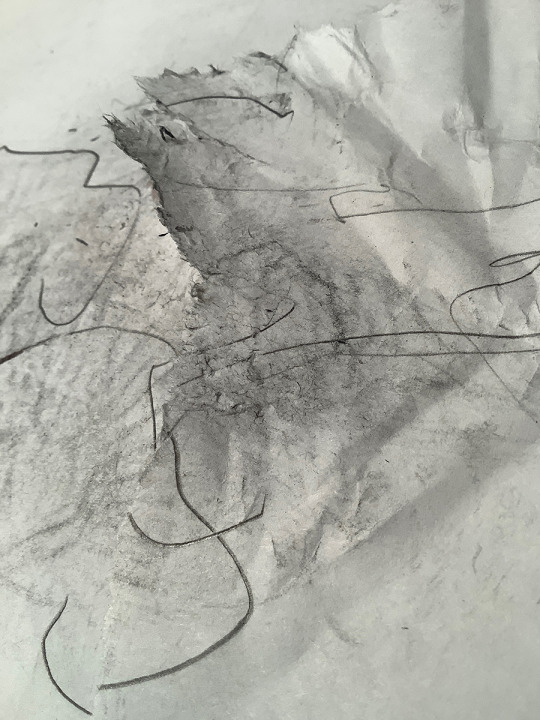
4683 . 20230404
...drew a border line up and down the country, writing a Here and a There in the sandy earth. Under it, however, countless watery question marks and intertwining letters tugged... — Esther Kinsky, River (2014; Iain Galbraith, trans., 2018) : 171
—
march (n.2) “a frontier, boundary of a country; border district,” early 13c., from Old French marche “boundary, frontier,” from Frankish *marka or some other Germanic source (compare Old Saxon marka, Old English mearc; Old High German marchon “to mark out, delimit,” German Mark “boundary”)... Now obsolete. Related: Marches. ...but as it came to mean “borderland” in many languages, other words were shifted or borrowed... — Online Etymology Dictionary : link
all tagged river all tagged rivers
13 notes
·
View notes
Text
Mercury (/ˈmɜːrkjʊri/); Latin: Mercurius [mɛrˈkʊrijʊs] is a major god in Roman religion and mythology, being one of the 12 Dii Consentes within the ancient Roman pantheon. He is the god of financial gain, commerce, eloquence, messages, communication (including divination), travelers, boundaries, luck, trickery, and thieves; he also serves as the guide of souls to the underworld and the "messenger of the gods".

The name "Mercury" is possibly related to the Latin words merx ("merchandise"; cf. merchant, commerce, etc.), mercari (to trade), and merces (wages); another possible connection is the Proto-Indo-European root merĝ- for "boundary, border" (cf. Old English "mearc", Old Norse "mark" and Latin "margō") and Greek οὖρος (by analogy of Arctūrus/Ἀρκτοῦρος), as the "keeper of boundaries," referring to his role as bridge between the upper and lower worlds.
ᅟᅟᅟᅟᅟᅟᅟᅟᅟᅟ ﹠.﹠
In Roman mythology, he was the son of Maia, one of the seven daughters of the Titan Atlas, and Jupiter. In his earliest forms, he appears to have been related to the Etruscan deity Turms; both gods share characteristics with the Greek god Hermes. He is often depicted holding the caduceus in his left hand. Similar to his Greek equivalent Hermes, he was awarded a magic wand by Apollo, which later turned into the caduceus, the staff with intertwined snakes.
0 notes
Text
I started playing Fallen London yesterday after I saw a post asking for contacts from @iraprince and I'm so grateful to it for bringing my attention to this game. Such a fun little thing, great for taking up the spare minute or two between tasks at work *and* the longer breaks in waiting rooms and stuff.
I'm having a lot of fun figuring out the systems and trying to stay in character instead of just RPG metagaming to optimize stats and get the "best" outcomes for as many stories/quests as I can.
Also I just realized I accidentally made it part of Deacon Mearc's story that ira's character is the one who invited him to The Neath. Might have to retcon that.
But I'm having fun playing Mearc as a young seminary student from a sheltered, fundamentalist community who found out about The Neath and it shook him to his theological core, so he just had to find a way down there and learn more.
For stats I'm focusing on Watchful first, and I've got to decide between Persuasive and Dangerous to pick an ambition story. Still not sure on that one.
1 note
·
View note
Text

Listen. The Spn Grendel Rabbit Hole is literally endless. Every time I reread Beowulf I find some new, even more horrific Sam-And-Dean coded bullshit. I have had to maintain IMPOSSIBLE levels of chill in front of my profs/TAs as they say things like "well, another argument for Grendel being human is that the original Old English text of his death scene specifically describes his 'Soul' being pulled to Hell. In this culture, only humans have souls" or "Grendel's Mother's relation to Cain is simultaneously wife, daughter, and unspecified 'Kin', because this culture would have seen her relation to Cain as 'Kinship' first and foremost, with the specifics of 'kinship' being dependent on whether Cain was actually present. As Cain is not present in Beowulf, and implied to be long dead, she reads IN THAT MOMENT as his descendant"
(during that second one I was just standing there totally frozen in place as every part of Dean and John's dynamic flashed before my eyes. When the TA finished explaining I was just like "wow that is. So Interesting and really gives me a lot to think about! Thank you!!!" *Dean Winchester banging on the walls of my brain*)
not even getting into the fact that "Mearc" (the Old English ancestor of our word "Mark") had a broader meaning as a mark/marker/boundary-marker/boundary/border/no-man's-land/liminality/wilderness
...its been 1000 years since we had "The Mark Is A Place" but????? I guess if someone was gonna bring that back it would be "Grendel, mære mearcstapa" (lit: "Grendel, the famed mark-walker") himself
and his mom
and her big sexy knife
i hate hate HATE when fics pose cas as a timid wittle baby who doesn’t know anything about the human world. HE’S THOUSANDS OF YEARS OLD AND HAS BEEN OBSERVING EARTH FOR GENERATIONS. sure, he might not understand all the pop culture references, BUT HE’S NOT CLUELESS ABOUT EVERYTHING. STOP BABYING HIS CHARACTER. HE IS MURDEROUS AT POINTS AND CAN KILL W THE FLICK OF HIS WRIST AND WILL COMMAND RESPECT AND PUT DEAN ON HIS KNEES IN AN ALLEYWAY.

#oh honorable mention to the fact that one of Grendel's Mother's titles/descriptors is 'Merewif' meaning 'water woman'#so one time while talking to a friend abt All This I said#'Dean is forced from a really young age to fulfill this motherly role- Merewif/Mary Winchester/whatever'#and then had to stop and put my head in my hands for a solid few minutes#anyway yeah it NEVER STOPS#there are OTHER SPN CHARACTERS IN BEOWULF#SOME OF THEM HAVE THE SAME FUCKING NAME#spn#grendelposting#...i rly did this instead of hw. fuck
2K notes
·
View notes
Photo
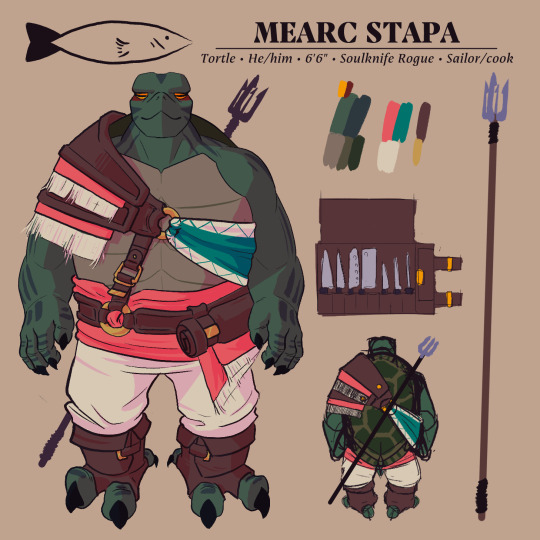
Here is Mearc, a tortle rogue character I made for a cooking-themed D&D game!
12 notes
·
View notes
Note
Evening brings a fella with a face full of freckles and a shaggy mop of strawberry blond hair into Book's one evening. He's lanky--not in the 'I am in shape' sense, more 'I forget to eat food more than occasionally', and dressed in a T-shirt from a security conference, paired with grey cargo pants and a brown leather messenger bag. He steps in, glances around curiously, and then notices the warning signs, reading one a few times over, as if he'll notice a catch in the wording.
A fresh face meant that moments later, Hester was uncomfortably close behind him, face plastered with a customer service smile, as she abruptly announced-
"Good evening! Is there anything I can help you with?"
15 notes
·
View notes
Text
Got tagged by @ladysabertooth and @mearc-stapa to post my lock screen, home screen, last song i listened to, and last photo i saved wooo
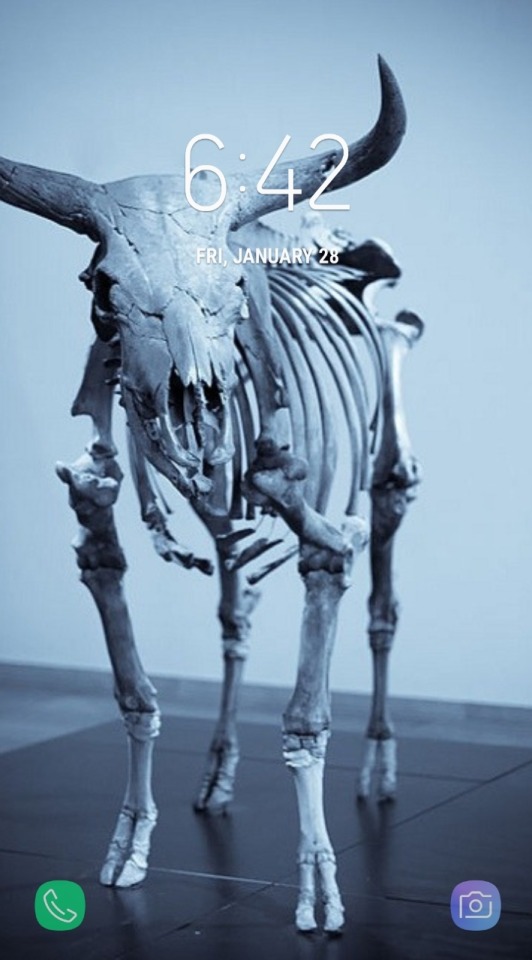

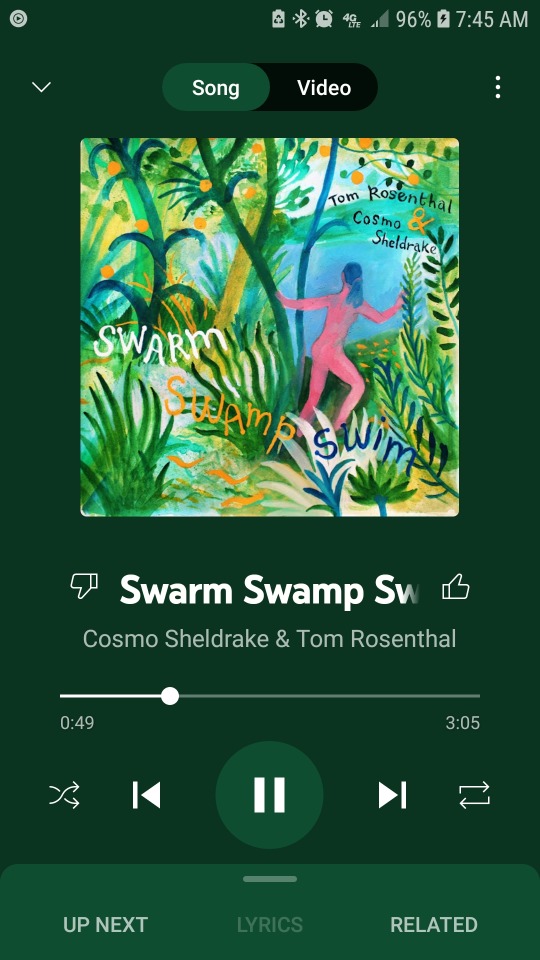
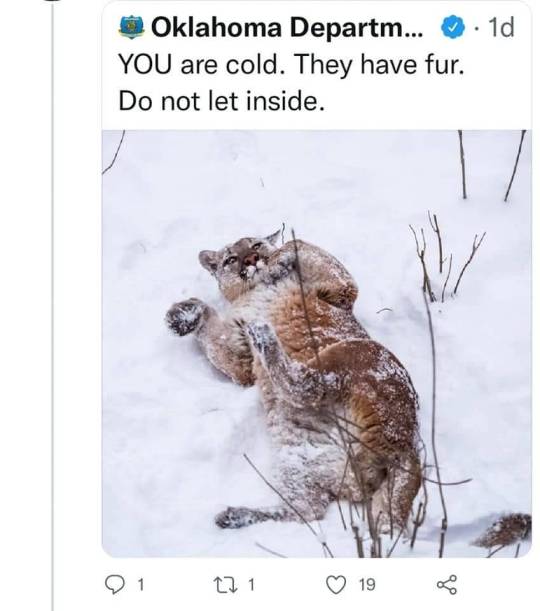
Ill tag @saint-nevermore @aussieosbourne @foulserpent @reliquarian @daggerfelt @asunwv and anyone else who'd like to do it!
#my home screen bg like. moves around and changes between altamira bison and cueva de las manos#the other cave art cost money and like.i may get it at some point but meh#and i dont save photos often so i had to scroll a bit to get one that wasnt the lock screen pic i just saved cjsjx
13 notes
·
View notes
Text
so again obviously this is far from comprehensive but here is my rough guide for converting Old English words (Wiktionary is your friend here, I also utilize this site) into sth that sounds like Rohanese:
(this post will be updated as I iron out my process)
Existing Breakdown:
Lohtûr "Horse-folk" (Rohanese) > Eohmenn (Old English)
eoh > war-horse, poetic use of horse; þēod > people, folk use Mann/Menn instead, þēod implies “nation” while “Menn” implies “folk”
Tudnas “guard” breaks down into tud “to watch, to guard” + nas “people,” which is perhaps a cognate for the Riders, and would imply then that nas aligns with þēod
Tud (verbal) then becomes weardian, meanwhile Thur (noun) is simply weard (Lord in Old English was hlafweard (bread guardian)) > breaks down into Tudnas “[He Who] Guards The People/Nation” and Thuron “Guard of (insert Rohanese word for bread; likely ending in -on).”
However, instead of using weardian, to keep consistency we'll use scildan/sċildend to match the S > D/T alignment created by Smaug. Scildan means both "to protect" and "to shield"
(above implies that Thur should not have an H; this would also align with Tûrac. Possibly closer to ð/Dh than þ/Th when vocalized?)
Tûrac "king"
Neologically, utilizing -ac as a regal suffix (Tûr “people” + -ac “leader(?)”)
This is why I'm not bothering to provide a direct translation into Old English, though I've utilized it in place of "Brego" for Théodred's steed — Brego developed from proto-Germanic breguz (“the first, premier, chief”), which would make sense since Tûr is an existing element in other words
It therefore suggests -ac may be a superlative suffix, making Tûrac translate literally to "best/first of the people"
Tûca “daring” > spearciġ “spunky”
This implies -a is the Rohanese equivalent to modern English -y/Old English -iġ for forming adjectives
(Yes I played fast and loose with this translation don’t @ me. I’m trying to be consistent and ‘spunk’ is a combination of ‘spark’ + ‘funk.’ So there you go.)
Maur “wise” > læred “learned”
Utilizing "læred" instead of the more direct "wis" simply to avoid complications with Rôg/Wose
Kûd “hole” > Hol; dûk “dwell” > setlan “settle”
This implies that -an is an agentive suffix. Dûk "dwell" > Dûkan "dweller"
Kastu "mathom" > heord "herd"
Kastu is interesting because it’s a Rohanese word for Mathom, which is itself a word Tolkien invented, pulled from māþum (treasure, object of value)
I don’t think it makes a ton of sense for the Rohanese word to directly parallel the Hobbit sense of the word; I would argue it should be closer to Feoh, which means both wealth and livestock — an important thing with societal value less directly tangible than money, I.E. either a general term for livestock or more likely a term for either wild herds of horses or Mearas?? Things to consider.
Utilizing heord as it ties in with Feoh's idea of livestock without the dual meaning of the rune-name, and it maintains the H > K pattern
Lôhgrad > Riddermark
While Lôhgrad gets translated to Riddermark, I’d argue that makes little sense as mearc was generally used in the sense of boundary/limit, not land/country/etc.— however, I also think it’s the least clunky way to translate it while still sounding punchy (Ridderlond doesn’t have the same ring to it lol). I’d still propose that “G” actually remains unchanged; “grad” > “græsmolde”/grasslands. So if you’re looking for a more wordy translation, as this is pretty common with place names (and surnames), it would become “Riders’ Grasslands/Plains” instead of “Riders’ Boundary”
Trâgu > Smaug
this has the best direct translation line; thank you Tolkien Gateway for confirming Smaug is an old Norse word meaning “crafty.”
Younger Futhark does not have a D rune, so it’s likely that S could lead to either D or T in Rohanese (which implies an interchangeability between the two letters; this holds consistent with Germanic languages)
Rôg > Wose
another one that makes my life very easy, since Wose is also already a real Middle English word and its first consonant doesn’t change in Old English (wāse). Yay.
Trahan > Smial/burrow
Trahan can be used as a word for Smial but it’s more likely used in Rohanese as an actual burrow, I.E. an animal’s lair.
thankfully, the Anglo-Saxon word smygel does, indeed, mean “burrow”/”place to creep through” which maintains the S > T trend. Fuck yes.
Roughly (Old English > Rohanese):
(H)E > L (only for initial Es)
Th > N
L > M
H(o) > K(û)
S > T/D (Sm > Tr)
G > G
W > R
C > D
Construction Notes:
“oh” sounds generally change to long “u” sounds when following a hard consonant (D, T, G, K, etc.)
Remains “o” following soft consonants (Loho vs Eoh)
“A” sounds seem to be richer when following a soft consonant (I.E. M/N, L, H, Th), for lack of a better term — “æ” (pronounced like the “A” in ash or camp) becomes “au”
“A” remains as æ following G(r), presumably holds true for D/T/etc
 (long A) replaces english “au” following T(r); implies a consistent lengthening following hard consonants
Rohanese possibly adds an “o” to soft consonants at the end of words (h, th); see “Loho” (horse) versus “Lohtûr” (horse-folk)
Adds a“u” following hard consonants? (Trâgu, Kastu)
Adjectival suffix of "-a" (Tûca) — compare to modern English “-y”
Seems to treat “Th” at the start of the word as a hard consonant closer to Eth/”D”
“E” in English tends to lengthen to “A” or “O” in Rohanese, while “O” tends to lengthen to “U” or “Ô.” Due to lack of direct evidence, I've decided I/Y will lengthen to "Â."
Ignoring initial “H” sound in Old English when dealing with (H)eo; treated as E > L
C in Rohanese treated the same as the Anglo-Saxon Cēn rune (pronounced as "ch" before a vowel, or as "k" after)
Utilizing the A-stem neuter Old English plural system
Nominative/Accusative: -u
Genitive: -a
Dative: -um
Word ends in a consonant? Add as a suffix (Tudnas > Tudnasu). Word ends in a vowel? Convert the vowel (Loho > Lohu). If it ends in a “U,” simply lengthen it (Kastu > Kastû).
Agentive suffix of -an (as implied by dûkan; compare to modern English -er/Old English -ere)
Utilizing the Old English possessive suffix -es, converted to "-os" in Rohanese
Could possibly use the Old Norse concrete suffix -oþ, converted as "-un" (used to make concrete nouns from verbs, I.E. "to hunt, huntian" versus "a hunt, huntoþ")
Utilizing Old English diminutive -can, converted as -cen (confirming e as a possible vowel considering “Mearas,” though it seems to be uncommon)
Generally using Old Norse pronouns, since they tend to have a harsher sound than Old English, which I prefer for Rohanese
Using -a as a nominative verb ending (I.E. “ik dûka” -> “I dwell”)
Utilizing Old English -lic, converted as -mak (adjectival suffix meaning "having the form of," comparable to modern English -ly)
So, for an example of this in action:
Sōðe lufu “true love” > Sōðe heorte “true heart” > Dûno lauh’dûkanu > “true-beloveds”
Sōðe “true” > Dûno (initial consonant change + vowel lengthening rules, chose N for personal euphonics)
Heorte “heart” > Lauho
Lauh’dûkanu > compound of Lauho + dûkan + plural nominative-accusative suffix -u > “heart-dwellers” (you don't NEED the apostrophe but I think it looks better; personal choice)
(Note how close “heart” Lauho + “horse” Loho are lol; unintentional but fitting for the Rohirrim)
ok it’s nowhere near comprehensive considering the lack of material we have to work with, but would anyone be interested in my notes on reverse-engineering Rohanese words??
*edit: “actual” Rohanese not just the old English “translations” that get passed off as Rohanese 95% of the time
9 notes
·
View notes
Text
Okay buckle up I'm taking a break from weird anglo-saxon sewing to ramble about Old English terminology for a bit
@tansyuduri this is the term I had mentioned I wanted to tell you about re: nature spirits acting as intermediaries between realms
Lets talk about the word "Mearcstapa".
Its used once in Beowulf, in line 103, to describe the creature Grendel.
Grendel is, in brief, some kind of ambiguous creature and/or cursed human, descended from Cain, cursed by that descent to wander and "hold" (as in, treat as a stronghold) the wilderness forever. He has very little physical description except that he is very large and swordproof, and may have claws? Anyway, he isn't what I want to talk abt right now. For Once.
I'm going to take a stab at translating the OE text myself, VERY roughly, and provide some context for where the word appears.
"This grim ghost was called Grendel, famous mearc-stapa, he who holds the marshes, fen-as-fortress; the lands of monsters un-blessed he guarded for a while, since the Shaper* had him written in the race of Cain- whose torment was the Lord's vengeance, for he slew Abel."
(Beowulf lines 102-108, translation My Weird Gay Ass)
*a common OE term for God, meaning something between "shaper/maker" and "poet/singer"
(that is MESSY towards the end but I've never tried to translate Beowulf myself ok)
anyway it goes on about Cain for a bit after that, the usual stuff you can find in the bible, but what is a "Mearc-stapa"?
well, "-stapa" is really easy, its one of the words in Old English that changed relatively little into the modern day.
"-stapa" is "stepper". one who steps across, walks upon and generally treads over something.
ok cool. what's a "mearc"
WELL THIS IS WHERE THINGS GET REALLY REALLY WEIRD AND HARD TO TRANSLATE.
"Mearc" as a word and as a concept has not survived intact in modern English, at least not on its own. Its latest surviving incarnations are in the extremely-early-middle-english "March" or "Mark", so lets start there. I'm just gonna hit Wiki for this one:
In medieval Europe, a march or mark was, in broad terms, any kind of borderland,[1] as opposed to a state's "heartland". More specifically, a march was a border between realms or a neutral buffer zone under joint control of two states in which different laws might apply. In both of these senses, marches served a political purpose, such as providing warning of military incursions or regulating cross-border trade.
Marches gave rise to titles such as marquess (masculine) or marchioness (feminine) in England; marqués (masculine) and marquesa (feminine) in Spanish-speaking countries and the Catalan and Galician regions; marquês (masculine) and marquesa (feminine) in Portuguese-speaking countries; markesa (both masculine and feminine) in Basque; marquis (masculine) or marquise (feminine) in France and Scotland, margrave (German: Markgraf, lit. 'march count'; masculine) or margravine (German: Markgräfin, lit. 'march countess', feminine) in Germany, and corresponding titles in other European states.
Etymology[edit]
The word "march" derives ultimately from a Proto-Indo-European root *mereg-, meaning "edge, boundary". The root *mereg- produced Latin margo ("margin"), Old Irish mruig ("borderland"), Welsh bro ("region, border, valley") and Persian and Armenian marz ("borderland"). The Proto-Germanic *marko gave rise to the Old English word mearc and Frankish marka, as well as Old Norse mǫrk meaning "borderland, forest",[2] and derived from merki "boundary, sign",[2] denoting a borderland between two centres of power.
In Old English "mark" meant "boundary" or "sign of a boundary", and the meaning only later evolved to encompass "sign" in general, "impression" and "trace".
The Anglo-Saxon kingdom of Mercia took its name from West Saxon mearc "marches", which in this instance referred explicitly to the territory's position on the Anglo-Saxon frontier with the Romano-British to the west.
...cool. that was a lot. anyway, that's what a "Mearc" is, in the most basic sense (Beowulf being in the West-Saxon dialect mentioned above, specifically having been recorded mainly in the Late-West-Saxon written dialect known academically as Winchester Standard for reasons to do with some bishop whose name I'm not going to bother trying to spell)
however, in the context its used in Beowulf, "Mearcstapa", or "Mark-walker", becomes a REALLY weird term. See, Grendel isnt wandering around the boundaries between two towns, or kingdoms, or countries. He's just kind of out in the woods, some of which happen to border one singular, somewhat sizeable town that Grendel then regularly attacks. So what is he walking the border between?
Well, academics love to talk abt that lmao. Some people say it refers to land- or politically-based borders much LARGER than a country, and that it denotes Grendel as a foreigner, from another land or part of the world entirely. Some people see "Mark" as conjuring an image of a swampy, be-fogged "no mans' land" where settling and agriculture would be impossible. A wasteland, for human habitation at least, and thus an "in-between-place" in relation to the boundaries of human civilization- somewhere you travel through or around in between human-settled areas, where no laws of God or man apply. Its "The Dark Forest", the "Past The Threshold" in the Hero's Journey.
However, there's another widely discussed thematic meaning here, and it relies on a bit of context. Beowulf was recorded by monks in a time when Christianity was still relatively new to Northern Europe, the last remnants of various pagan religions only having been definitively wiped out a few centuries prior (FUCK YOU CHARLEMAGNE), and that's the time of RECORDING- Beowulf, as a story, had almost definitely been composed and passed down orally within those same preceding few centuries, likely in the 800s a.d. but possibly as far back as the 600s a.d. . So, what this means is that Beowulf is a record (imperfect as it is, being written down later and by monks) of a culture mid-transition between paganism and Christianity, and this isn't clearer anywhere than in another passage rambling on about Cain:
(in which I attempt to sloppily translate Beowulf again)
(picking up where we left off) "...no joy did he get from that feud, but was driven far away, ill-fated for his evil, far away from mankind. From thence all monstrous births awoke, jotun and elves and orcs*, those same giants who fought with God over long seasons; this was the recompense given"
(Beowulf, lines 109-144, trans. Me and 24/7 my spn brianrot)
*lit: "evil spirits" but the word is "Orcneas", Tolkein stole it and so will I.
(again, is this right? eh. mostly. the end got rough again)
so okay, lots of the usual Cain stuff, and some mentions of giants that some scholars have interpreted as relating to the Nephelim (more context there but its not relevant to this post). However, what may seem GLARINGLY out of place to anyone reading this passage about the BIBLICAL CAIN is the mention of JOTUN, ELVES AND ORCS.
and you'd be right! that is weird! and Grendel is a part of that!
so, with this context, it can be understood that the "Mearc" of Grendel's "Mearcstapa" has multiple meanings, to us anyway. For the Anglo-Saxon people who composed and passed down the story of Beowulf, the lawless and dangerous wilderness just outside their villages would have been one and the same to the lawless, dangerous world of heathen gods and monstrous creatures that their culture had so recently left behind. Uncontrolled forces and places that didn't respect the rule of man or God, untamed, just barely dispelled and always lurking at the edges. That is the "Mearc", as it is used here.
Mearcstapa, Mark-Walkers, Cain, whatever, happy Deanmon 10th anniversary yall.
Oh, on that note- some scholars/translators HAVE tried to argue for "Mearcstapa" as "Marked Wanderer", re: the Mark of Cain. However, they are more or less soundly overruled by the prevailing academic understanding of the term...
which is that the "Mark" is a liminal space that, in addition to being the actual areas between towns/cities and the place where monsters live, is also the barrier keeping remaining scraps of paganism (ie, perhaps other gods?) out of Christianity. And the descendants of Cain were set to patrol it. And that's something someone said in, AT THE LATEST, 1000 a.d.
why am I burdened with this knowledge.
#old english#beowulf#academia#medieval studies#linguistics#grendel#anglo-saxon#supernatural#deanmon#mythology#demon dean#dean winchester#sam winchester#cain#mark of cain#mearcstapa#cursed#this is a cursed ass post
6 notes
·
View notes
Text
Markland
Markland is a polity of Albion, situated east of Wales, north of London and Kent, and south of Northumber and Sodrick.
History
Markland originates with Saxon settlements in sub-Roman Britannia, which in the west formed (what would go on to be named) Mearce land "borderland". Compare the related demonym Mierce "people of the border", whence the Latin name Mercia and native Merchman "man from Markland".
The petty kingdom of Anglia was annexed by Markland with the Treaty of Oxford in the late eighth century, at the dawn of the Viking Age. This established the persevering border between the mouths of the Severn and the Tames, and incited renewed influx of people into the petty kingdoms on Borland.
Markland weathered the Viking Age much more successfully than neighbouring Northumber, though much of its eastern coast was settled by Danes; the city of Lincon served as the de facto border of Danish rule for several decades. In part this was the inevitable result of tensions along the Welsh border; even during peacetime Theodric the Awefast maintained substantial levy forces.
The tenth-century Elved Marriage (which took place near the modern city of Leeds) ended hostilities between Markland and Dane forces in the east for almost a century. It is said to have been solemnised over a sandstone block later inlaid into the Redstone Chair, a low-backed wooden throne on which many subsequent monarchs were crowned.
Around the turn of the second millennium, Markland was conquering territory from the northern reaches of Wales (incidentally leading to Pope Agatho's canonisation of the Welsh St David). The perennial conflicts between Markland and Wales would come to be collectively referred to as the Mallor Wars.
The First Drengot Empire of the eleventh and twelfth centuries counted Markland as a major vassal, conquered from the south following the subjugation of Kent by Normandy and Greater Devon in 1029.
The Mallor Wars were reignited after a quiescent period by the martial-minded King Andrew II, with the Sack of Rexam in 1301 during which the original St Brigid's Abbey burned to the ground.
Markland was embroiled in the Wars of Fealty in the late fifteenth and early sixteenth centuries. Tensions over the location and possession of the Redstone Chair boiled over into a conflict that would last forty-one years. Markland conceded several battles to the young Kingdom of Britain in the early years of the wars, culminating in the 1483 Battle of Rexam which expanded the borders of Wales in the north and killed the last Duke of Chestre.
In the final years of the Wars of Fealty, a code known as Thieves' Script was employed by the forces of King Andrew III, apparently adapted from similar systems used by gangs of housebreakers in Nottingham. It is remembered today as a very early precursor of codes like steeplescript or modern one-zeffre encoding.
The poor economic conditions and population displacement in Markland following the Wars of Featly led it to suffer almost twice as many deaths per capita from the Second Great Dying compared to polities like Willemy.
Long contested between Markland and Kent, the city of London found itself independent for one final, lasting time following the Democratic Wars of the mid-eighteenth century.
The spellings of various towns and cities in Markland were rationalised during the Long Peace period of the late eighteenth and early nineteenth centuries (for example, Conster for former Colncester /ˈkɔn.stə/).
The 2010 Œcumen Count, a regular census, recorded that Utter Safford was the secondmost populous city in Markland proper with 4.4 million inhabitants, after the capital of Tommarth.
People
Monarchs
Theodric the Awefast (fl. 800), repeller of several attempted vikings into Markish territory
Oswin the Becoming (fl. 1029), last ruler of an independent Markland before the First Drengot Empire
Andrew II (fl. 1301), who reignited the Mallor Wars with the Sack of Rexam
Andrew III (fl. 1500), ruler of Markland during the latter years of the Wars of Fealty
Authors
Ferris Bewly (fl. 1942), alchemist responsible for the quire 'Modern Developments in Benjamine Detaxion'
Laurent Burnows (fl. 2015), famous for children's series 'Back to Front' and later for the more mature series 'An Inconvenient Armageddon'
Anna and Ralph Highwater (fl. 1930), cowriters of the series of books 'Games for Sorties and Excourses'
Challow Huddresfell (fl. 1956), historian who wrote 'Daughters of the Sea: The Northwestern Isles'
Jason Ridley (fl. 1967), who with others wrote the quire 'A Handbook of Natural Theory'
Dr Harold Westcamp (fl. 1997), who wrote the series of textbooks 'Albick Medicine in the Workshop Decades'
Others
Sarzan Dawkinholm (fl. c19), long-serving and much-lambasted Outland Minister
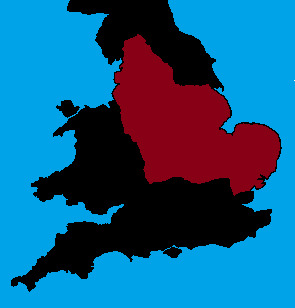
(Approximate extent of Markland proper in 2000 N.)
3 notes
·
View notes
Text
okay there are SO many voices in Under the Ruins of a Walled City that I think I need to think up some of them in advance, so I’ve been doing that! I’m thinking:
- Stepwell could have a clipped, Texas-style southern USA accent, or maybe a New Jersey accent (haven’t decided yet)
- Jek Porkins could have a slow/broad/comfortable-sounding Georgia accent
- Elana Levchen Hux could have a subtle German accent (works with the Bauernmädchen kind of image she paints of her young self)
- Ojelpani Faza should sound basically like Counselor Deanna Troi from Star Trek, and I don’t know why but I feel pretty strongly about this though I don’t know if I’ll be able to do it
- REALLY angsting about this one: I feel like the Mearc should sound Irish. The “they should have cut out your tongue” line redux is something that really fits with the Irish tradition of valuing a skillful command of language, so I think that would be a really lovely way to emphasize that within the scene. BUT there’s the problem that she’s seen drinking kind of a lot of alcohol, so it might be racist to give her an Irish accent. (I’m also not entirely confident that I could do it.)
- ugh, I should’ve given Han and Poe different voices in Ceasefire, because both of them have kind of a lot to say in this one. At least they can’t be in any scenes together
- Kind of want Moa to sound generically American and also have a little speech impediment
- Gotta admit that I have no idea how to make Dala sound and am not looking forward to her lines at all
3 notes
·
View notes
Note
Oof I hear you on that. There’s also Wikipedia pages for both these creatures if that would work (however, go with Wikipedia itself, not “monster wiki” or anything like that. They say weird stuff)
Honestly the most aggressively SpnCoded version of this poem is the original, which is in Old English, which is an entirely separate language from present-Day English and is FUNCTIONALLY DEAD. I am studying to become one of the FEW SPEAKERS OF this language, and yes this is a phenomenally useless skill but sometimes you don’t get to choose what you hyperfixate on.
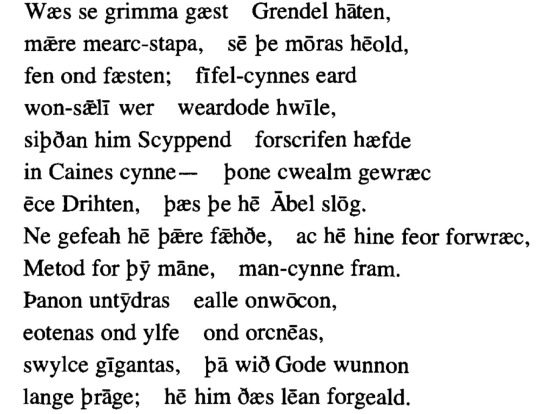
^Grendel’s introduction in the original Old English. Trust me, it’s so much more Sam than the translations (see that one phrase “Mearc-Stapa”? Yeah it would take an actual college lecture to properly explain what it most closely means, but it’s a level of Spn brainrot that defies description.)
But also yes absolutely check out a translation in your language and get back to me! I’ve honestly never even CONSIDERED Old English being translated into other languages, so academically this is fascinating, I will have to track down a Spanish translation myself!
Do you want to hear about a random millenia-old poem that will change the way you see Spn forever? Spoiler alert: plausibly-canon past lives where Dean is Sam’s mother and they’re both demons
yes pleaseee!!!
#yes to clarify I got into Old English through Spn.#I always loved mythology/history/archaeology/the Early Medieval period specifically#but for some reason when spn led me into Beowulf studies my brain went ‘yup this is what we’re doing forever’ and I’m in college for it now#THIS IS MY HOLE IT WAS MADE FOR ME#Spn#Beowulf#old English#academia#hm
18 notes
·
View notes
Text

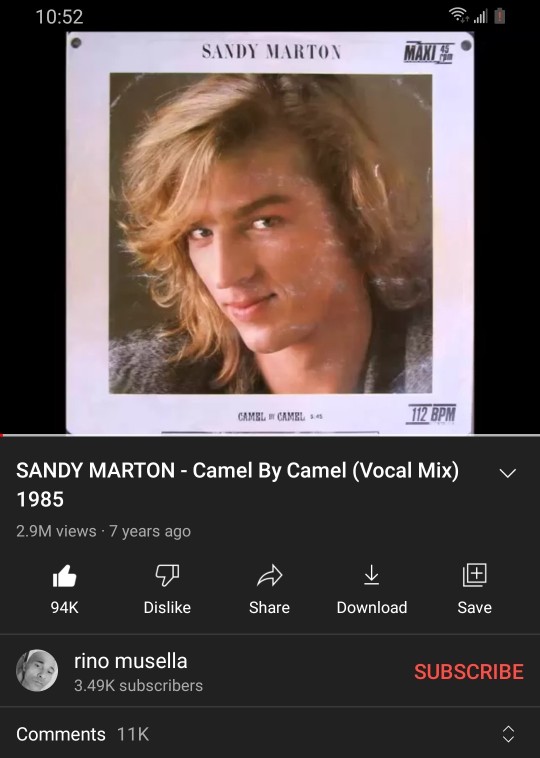

was tagged by @ladysabertooth and @mearc-stapa to share my lock screen, home screen (it's the same artwork), last song I listened to and most recent saved image (detail of Diana and Endymion by Francesco Solimena).
now it's my turn c:<
@itstimewehavesomesoliddick @lysenkoite @tyrannotitan @raptorcivilization and @floridensis
2 notes
·
View notes
Note
Mearc's stopping for a latte, and there's a bit of a line at the coffee shop. Which gives time for the plump goth at the table near the door to glance at him curiously a couple times, their fluffy quill pen paused above the notepad.
Mearcstapa is pocked with freckles and displays a veneer of suave relaxation over a subtle hypervigilence; he’s glanced at all the hidden security cameras in the room, all the exits, assessed the baristas, all before looking at the menu. Odd? Perhaps. No odder than the locals, at least.
52 notes
·
View notes